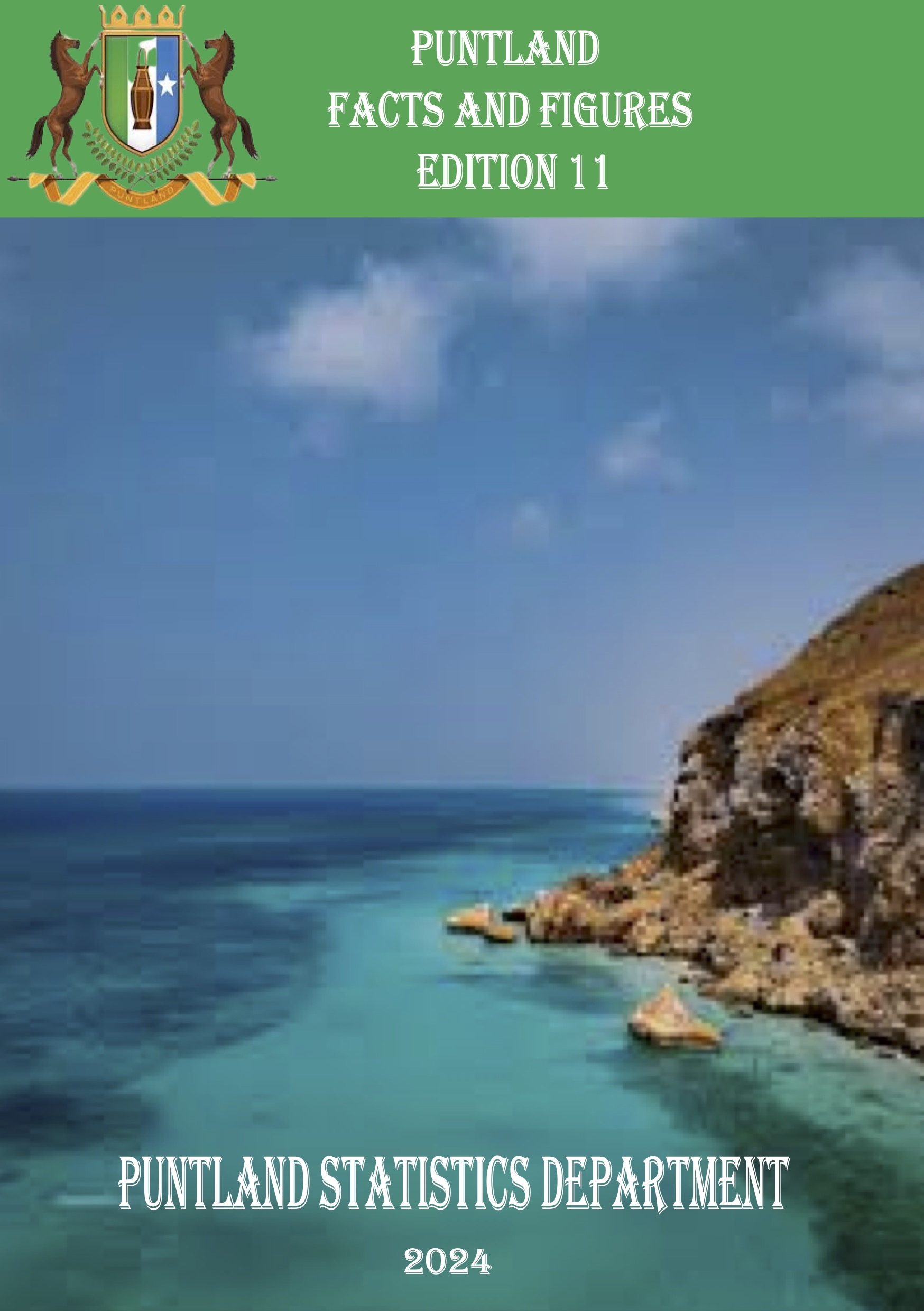Puntland Facts and Figures Edition 11
Published on Jan 07, 2025
The Ministry of Planning, Economic Development, and International Cooperation in Puntland is pleased to present the 11th edition of the Puntland Facts and Figures for 2024. This annual statistical report is compiled and published by the Puntland Statistics Department. The data included in this statistical overview is derived from the department's latest surveys and the government's administrative records from various ministries, departments, and agencies. The 11th edi- tion of the Puntland Facts and Figures book encompasses a broad range of statistics, including eco- nomics and trade, social statistics (health, education, crime, and migration), communication and trans- portation, public life, and political participation. The creation of this annual publication is part of our ongoing efforts to enhance the availability and qual- ity of socio-economic data. Our objective is to ensure that policymakers have access to reliable infor- mation for effective public policy planning and evidence-based decision-making. By establishing a benchmark for good governance and public accountability, we aim to foster the overall development of Puntland. We express our sincere appreciation to the ministries, agencies, and MDAs for their continued coopera- tion and support in the production of this statistical report. The Department of Statistics (MoPEDIC) encourages users to reach out with inquiries and constructive feedback. We would like to remind both current and potential users that the statistical data in this book- let undergoes continuous review, updating, and necessary adjustments. We hope that the information presented in this publication will empower readers to make informed decisions.
Puntland, situated in a strategically important location that connects coastal trade routes with inland markets, showcases a vibrant and evolving economy. Its official yearly facts and figures highlight a multitude of interlinked sectors, encompassing household consumption, government spending, and investments in capital formation. The region’s commerce is underpinned by both exports and imports, with maritime routes playing a pivotal role in transporting goods to and from international destinations. Livestock stands as a central pillar of trade, as goats, sheep, cattle, and camels frequently transit through major ports, reflecting a strong reliance on pastoral activities for revenue and growth.
On the import side, staple food products such as sugar, rice, flour, pasta, and cooking oil are vital in meeting local demand, underscoring the reliance on foreign-sourced provisions. Non-food merchandise, including vehicles, fuels, and diverse construction or manufacturing materials, also features prominently, supporting infrastructure development and further economic expansion. The interplay of these various imports and exports paints a dynamic picture of local commerce, illustrating a region that draws on global connections while remaining deeply rooted in traditional livelihoods.
From a governance perspective, the budgetary framework reveals a conscious effort to balance revenues and expenditures. Income from multiple forms of taxation—ranging from property and goods to international services and business transactions—helps to finance public administration, social programs, and targeted development initiatives. Government allocations prioritize wages and allowances, emphasizing the importance of human capital and community well-being, while funding for social assistance and infrastructure underscores a commitment to long-term stability.
Overall, these published insights showcase Puntland’s growing prominence and its readiness to embrace fresh opportunities. By cultivating partnerships, maintaining fiscal transparency, and supporting both its pastoral heritage and modern development needs, the region positions itself for sustained progress. Through meticulous record-keeping and an ongoing focus on innovation, Puntland continues to chart a path toward broader prosperity and enduring resilience.
